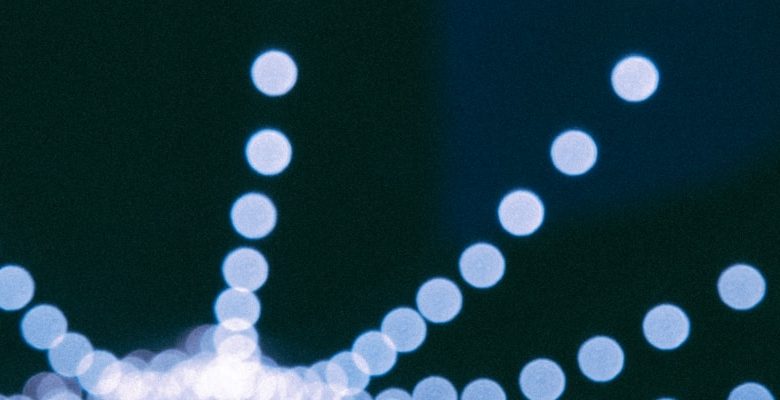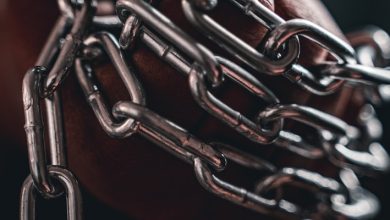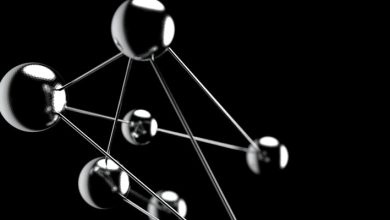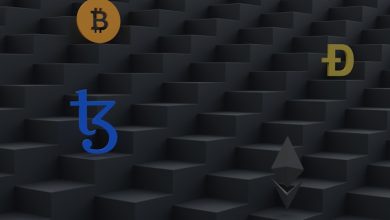The Role of Oracles in Connecting Blockchain with Real-World Data

- The Importance of Oracles in Blockchain Technology
- How Oracles Bridge the Gap Between Blockchain and Real-World Data
- Exploring the Functions of Oracles in Decentralized Systems
- The Role of Oracles in Ensuring Data Accuracy on the Blockchain
- Challenges and Opportunities in Utilizing Oracles for Real-World Data Integration
- Case Studies: Successful Implementations of Oracles in Blockchain Projects
The Importance of Oracles in Blockchain Technology
Oracles play a crucial role in blockchain technology by bridging the gap between the digital world of smart contracts and the physical world of real-world data. They act as trusted sources of external information that can be relied upon to trigger actions within a blockchain network based on predefined conditions. This is essential for blockchain applications that require access to off-chain data in order to function effectively.
One of the key benefits of oracles is their ability to provide blockchain networks with access to real-time data from the outside world. This data can include anything from stock prices and weather conditions to sports scores and election results. By leveraging oracles, blockchain applications can make more informed decisions and automate processes that would otherwise be impossible without access to this external information.
Furthermore, oracles help to ensure the security and integrity of blockchain networks by verifying the accuracy of the data they provide. Through the use of cryptographic techniques and consensus mechanisms, oracles can help to prevent malicious actors from tampering with the information that is being fed into a blockchain network. This is crucial for maintaining trust and reliability in decentralized applications that rely on accurate and timely data.
Overall, the importance of oracles in blockchain technology cannot be overstated. They serve as the vital link between the digital and physical worlds, enabling smart contracts to interact with real-world data in a secure and reliable manner. As blockchain technology continues to evolve and expand into new industries, the role of oracles will only become more critical in enabling the next generation of decentralized applications to thrive.
How Oracles Bridge the Gap Between Blockchain and Real-World Data
Oracles play a crucial role in bridging the gap between blockchain technology and real-world data. These specialized tools act as intermediaries, fetching external data and transmitting it to smart contracts on the blockchain. By doing so, oracles enable blockchain networks to interact with events and information from the physical world, enhancing their functionality and utility.
Oracles are essential for decentralized applications that require real-time data to trigger actions or make decisions. For example, in decentralized finance (DeFi) applications, oracles provide price feeds for cryptocurrencies, stocks, and commodities. This real-time data is crucial for executing trades, issuing loans, and managing assets effectively on the blockchain.
One of the key challenges in integrating real-world data with blockchain technology is ensuring the accuracy and reliability of the information. Oracles use various mechanisms, such as data aggregation, consensus algorithms, and reputation systems, to verify the authenticity of external data before transmitting it to smart contracts. This helps prevent manipulation or tampering with the data, ensuring the integrity of the blockchain network.
Moreover, oracles can facilitate interactions between blockchain networks and IoT devices, enabling seamless communication and automation of processes. For instance, oracles can trigger smart contracts to execute predefined actions based on data from sensors or devices connected to the blockchain. This integration opens up new possibilities for applications in supply chain management, healthcare, logistics, and other industries.
Overall, oracles serve as a critical link between blockchain technology and the real world, enabling the seamless exchange of data and information. As blockchain technology continues to evolve and expand into new domains, the role of oracles will become increasingly important in unlocking the full potential of decentralized applications and smart contracts.
Exploring the Functions of Oracles in Decentralized Systems
Oracles play a crucial role in decentralized systems by acting as intermediaries between blockchain networks and real-world data sources. These oracles are responsible for fetching external data and feeding it into smart contracts for execution. They enable blockchain applications to interact with information outside of their network, such as price feeds, weather data, or sports scores.
Oracles come in various forms, including software, hardware, and consensus-based solutions. Software oracles rely on APIs to retrieve data, while hardware oracles utilize sensors and IoT devices to gather information. Consensus-based oracles aggregate data from multiple sources to ensure accuracy and reliability. Each type of oracle has its strengths and weaknesses, depending on the specific use case.
One of the main functions of oracles is to validate and verify external data before transmitting it to the blockchain. This verification process helps prevent malicious actors from manipulating the data and ensures its integrity. Oracles use cryptographic techniques and reputation systems to authenticate data sources and maintain trust within the decentralized network.
Furthermore, oracles also play a role in resolving disputes that may arise from conflicting data inputs. In the event of discrepancies, oracles can trigger governance mechanisms to reach a consensus on the correct information. This process helps maintain the accuracy and consistency of data on the blockchain, enhancing the overall reliability of decentralized applications.
Overall, oracles serve as a bridge between blockchain networks and the real world, enabling the seamless integration of external data into smart contracts. By performing essential functions such as data validation, verification, and dispute resolution, oracles play a pivotal role in ensuring the reliability and trustworthiness of decentralized systems.
The Role of Oracles in Ensuring Data Accuracy on the Blockchain
Oracles play a crucial role in ensuring the accuracy and reliability of data on the blockchain. In the context of blockchain technology, an oracle is a trusted source of external data that can be brought onto the blockchain to trigger smart contracts or provide information for decentralized applications.
By connecting the blockchain with real-world data, oracles help bridge the gap between the digital and physical worlds. They enable smart contracts to interact with external environments, such as financial markets, weather conditions, or IoT devices, by providing timely and accurate data feeds.
Oracles act as intermediaries between off-chain and on-chain systems, verifying and validating data before it is written to the blockchain. This verification process helps ensure that the information stored on the blockchain is accurate, up-to-date, and tamper-proof.
Without oracles, blockchains would be limited to processing only data generated within the network, severely restricting their potential use cases. By leveraging oracles, blockchain applications can access a wide range of external data sources, opening up new possibilities for innovation and automation.
Challenges and Opportunities in Utilizing Oracles for Real-World Data Integration
There are both challenges and opportunities that come with utilizing oracles for integrating real-world data into blockchain systems. One of the main challenges is the potential for data manipulation or inaccuracies when relying on external sources. This can lead to trust issues and compromise the integrity of the blockchain network. However, there are also opportunities to improve data reliability and expand the use cases for blockchain technology.
One way to address the challenges is by implementing multiple oracles to validate and cross-check the data before it is recorded on the blockchain. This can help mitigate the risk of errors or tampering. Another opportunity is to leverage smart contracts to automate the data verification process, ensuring that only accurate information is accepted onto the blockchain.
Furthermore, the use of oracles can open up new possibilities for connecting blockchain with real-world data, such as enabling decentralized finance applications to access external market prices or allowing supply chain management systems to track goods in real-time. This can lead to increased efficiency, transparency, and trust in various industries.
Case Studies: Successful Implementations of Oracles in Blockchain Projects
Here are some case studies showcasing successful implementations of oracles in blockchain projects:
- Case Study 1: A decentralized finance (DeFi) project utilized an oracle to fetch real-time price data for various cryptocurrencies. By integrating this data into their smart contracts, the project was able to offer users accurate pricing information for their transactions.
- Case Study 2: An insurance platform leveraged an oracle to access external data related to weather conditions. This data was used to trigger insurance payouts automatically in case of extreme weather events, streamlining the claims process for users.
- Case Study 3: A supply chain management solution integrated an oracle to track the location and status of shipments in real-time. By connecting blockchain data with external sources, the platform improved transparency and efficiency throughout the supply chain.
These case studies demonstrate the versatility and effectiveness of oracles in bridging the gap between blockchain networks and real-world data. By enabling secure and reliable data feeds, oracles play a crucial role in enhancing the functionality and usability of blockchain-based applications across various industries.



